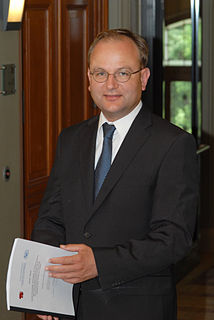A Quote by Alfred-Maurice de Zayas
In a world where millions of human beings live in extreme poverty, die of malnutrition and lack medical care, where pandemics continue to kill, it is imperative to pursue good faith disarmament negotiations and to shift budgets away from weapons production, war-mongering, surveillance of private persons and devote available resources to address global challenges including humanitarian relief, environmental protection, climate change mitigation and adaptation, prevention of pandemics, and the development of a green economy.
Quote Topics
Adaptation
Address
Available
Away
Beings
Budgets
Care
Challenges
Change
Climate
Climate Change
Continue
Development
Devote
Die
Disarmament
Economy
Environmental
Environmental Protection
Extreme
Extreme Poverty
Faith
Global
Good
Good Faith
Green
Green Economy
Human
Human Being
Human Beings
Humanitarian
Imperative
Including
Lack
Live
Malnutrition
Medical
Medical Care
Millions
Negotiations
Pandemics
Persons
Poverty
Prevention
Private
Private Person
Production
Protection
Pursue
Relief
Resources
Shift
Surveillance
War
Weapons
World
Related Quotes
A united humanity will be able to confront the many troubling problems of the present time: from the menace of terrorism to the humiliating poverty in which millions of human beings live, from the proliferation of weapons to the pandemics and the environmental destruction which threatens the future of our planet.
It's a moral imperative, it's an economic imperative, and it is a security imperative. For we've seen how spikes in food prices can plunge millions into poverty, which, in turn, can spark riots that cost lives, and can lead to instability. And this danger will only grow if a surging global population isn't matched by surging food production. So reducing malnutrition and hunger around the world advances international peace and security - and that includes the national security of the United States.
Poverty - the greatest cause of human suffering on the planet - is itself exacerbated by conflict, competition for resources, injustice, even the global downturn and climate change. Diseases like AIDS, TB and malaria cannot be tackled without adequate resources. So you see everything is connected. In order to address any major cause of human suffering, we have to work together across many fronts.
The court was unable to rule on all circumstances in which nuclear weapons might be used, and it said in view of the problems, the risks posed by nuclear weapons, and in view of the lack of certainty of the law in all circumstances, the best course is fulfilling the obligation of good faith negotiations of nuclear disarmament contained in the nuclear non-proliferation treaty.
The development of a strategic plan for cancer prevention in medical schools that is supported by all stakeholders - including the medical community, government, the insurance industry, cancer advocacy groups and all those dedicated to cancer prevention - will be the key to inspiring patients to live lifestyles that will decrease cancer risk.
The human species is now at a point where it has to make choices that are going to determine whether decent survival is even possible. Environmental catastrophe, including war, maybe pandemics, these are very serious issues and they can't be addressed within the current structure of institutions. That's almost given. There have to be real significant changes, and only really effective popular mass-based movements can introduce and carry forward such initiatives, as indeed did happen during the 1930s.



































